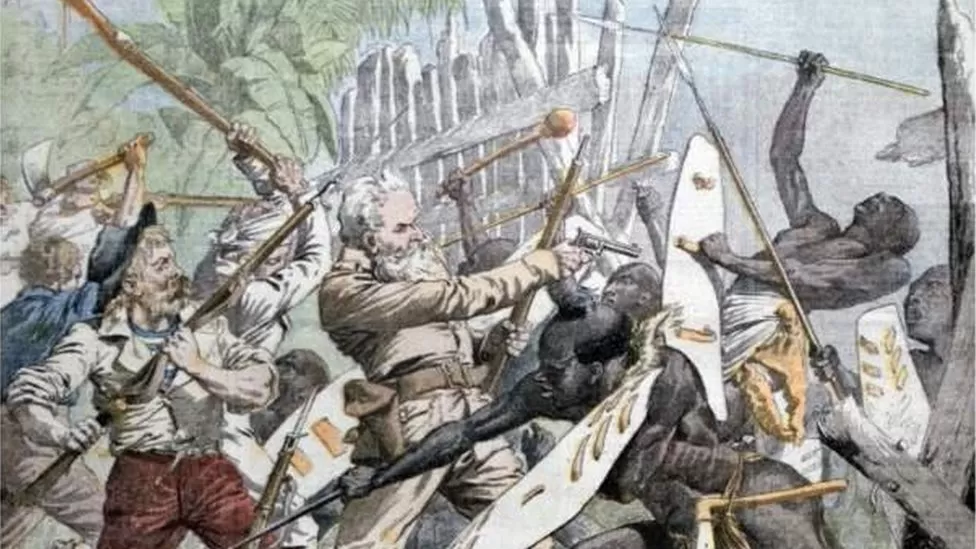Germany asks forgiveness for Tanzania colonial crimes

A German president expressed “shame” over the colonial atrocities committed against Tanzania by his country.
In the early 1900s, the Maji Maji rebellion, one of the bloodiest anticolonial revolts, killed almost 300,000 people.
A museum in Songea, the site of the uprising, hosted President Frank-Walter Steinmeier.
The Germans did terrible things to your ancestors here and I would like to ask for forgiveness.
“What happened here is part of our shared history, the history of your ancestors and our ancestors in Germany.”
A German policy aimed at forcing the indigenous population to grow cotton for export triggered the Maji Maji rebellion.
The country of Tanzania was a part of German East Africa, which included Rwanda, Burundi, and parts of Mozambique.
Tanzanian President Steinmeier said he hoped that Germany and Tanzania could work together on a “communal processing” of the past.
“I will bring these stories to Germany so that more people in my country will know about them,” he said.
According to Jürgen Zimmerer, a history professor at the University of Hamburg, Germany has had “colonial amnesia” until recently.
There was a lack of understanding of the brutality and racism of this colonial empire among the German people.”
President Steinmeier told his family German authorities would try to find his remains now that he is a national hero in Tanzania.
The Germans brought tens of thousands of human remains from their colonies – both as “trophies” and for racist research.
It is almost impossible to identify where these bones and skulls came from since there is little funding available, said Prof Zimmerer.
Following a meeting with Tanzania’s President Samia Suluhu Hassan on Tuesday, the German ambassador pledged to cooperate with Tanzania on cultural property repatriation.
